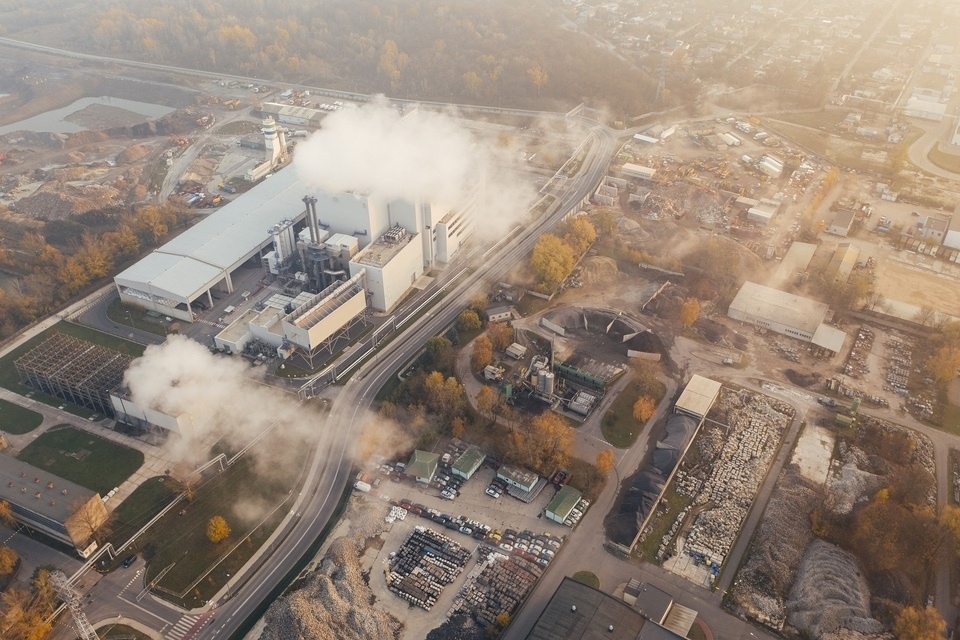Hungary ranked among TOP countries for reducing carbon emission
The ranking was carried out within the framework of KPMG’s Net Zero Readiness Index (NZRI) that measures the performance of individual countries based on their decarbonisation strategies. Hungary, having reached a maximum score, was ranked among the TOP15 countries. The country has managed to outperform such prominent competitors as the USA, Singapore, or Australia.
The survey was carried out for the upcoming COP26 climate summit in Glasgow. The global conference promotes transparency and global cooperation regarding the mission of global decarbonisation. Within the framework of the Net Zero Readiness Index (NZRI), 103 indicators have been examined. Based on these figures, the 25 best-performing countries have been identified and additional 7 countries were placed on the “to be monitored” list. The examined criteria included the legal steps taken by the country’s government, the way how the financial sector handled the region, and the measures businesses implemented to fully reduce their carbon footprint.
Based on the recent ranking, Norway takes the trophy even though the country was used to be known as one of the largest oil and gas exporters in the world. The leading Nordic country achieved its prominent position with the rise of electric transportation, intensive investment in renewable energy, and the Norwegian parliament’s vote to move the zero-emission target from 2050 to 2030.
As the Hungarian news portal Portfolio reports, Norway is followed by the United Kingdom which landed second place with a similarly strong political agenda. The UK plans to implement further measures such as renewable heating solutions and the construction of greener buildings in the future. Sweden claims the third place for being an international advocate for climate policy, green energy, and sustainable technology.
Hungary has also reached a prominent place in the ranking, namely the 13th, and thus it outperformed such competitors as the USA (14th), Singapore (15th), Australia (17th), and Poland (19th).
According to KPMG experts, Hungary really deserves recognition as the 13th place in the overall ranking is the result of serious effort. Regarding the aspect of political will, the analysis of Net Zero Readiness Index mentions that „Hungary’s government has taken significant measures towards carbon reduction over the past 2 years”. The most significant environmental implementations include the decarbonisation of transport through tax benefits, financial aid packages for electric vehicles, and the promotion of intermodal freight junctions for cities. Furthermore, domestic companies were given the opportunity to utilize EU funds for the purpose of decarbonisation and green eco-saving solutions. In addition, several multinational manufacturers run their factories in the country while maintaining very high environmental standards. As far as the financial sector is concerned, the analysis highlights the country’s green program, introduced by Hungary’s Central Bank (MNB), as well as the green guidelines for banks.
As a result, Hungary is one of the five countries that receives the highest score on contribution to global Net Zero.
This is partly credited to its June 2020 climate protection law that was introduced to comply with the 2050 Net Zero target.
Read also: Hungary aims to be greener than ever – Innovation Minister about new technologies
Despite some challenges to overcome in the economy, Hungary is projected to keep its high ranking also in the future. The analysis highlights that approximately 40% of the country’s electricity is generated by the Paks nuclear power plant. The operation of the Paks 4 will also play a central role in energy management in the long term. All this information provides a solid base for the Net Zero emission target. The index also highlights the introduction of the Energy Efficiency Commitment Scheme (EQS) that will introduce sanctions from 2021 for electricity, gas, and fuel traders who fail to meet required efficiency indicators.
In terms of building construction, Hungary ranked 10th thanks to its geothermal heating solutions, mandatory energy certificates, and housing renovation subsidies. The newly built homes reach a high level of energy efficiency; however, the renovation of old buildings is considered to be a significant challenge.

Read alsoProduction starts of first electric car manufactured in Hungary
Source: portoflio.hu; kpmg.us
please make a donation here
Hot news
Traffic changes in Budapest due to political protest on Friday and Saturday
Chinese could emerge around Paks II construction in Hungary
Tourist-favourite Budapest chairlift to finally open this weekend! – PRICES
Trump: Hungarians fight to save Western civilisation
Great news: World’s first retail chain opens new store at Budapest Airport
Hungarian government hopes for a conservative turn in Europe and the US





1 Comment
Hungary rocks!